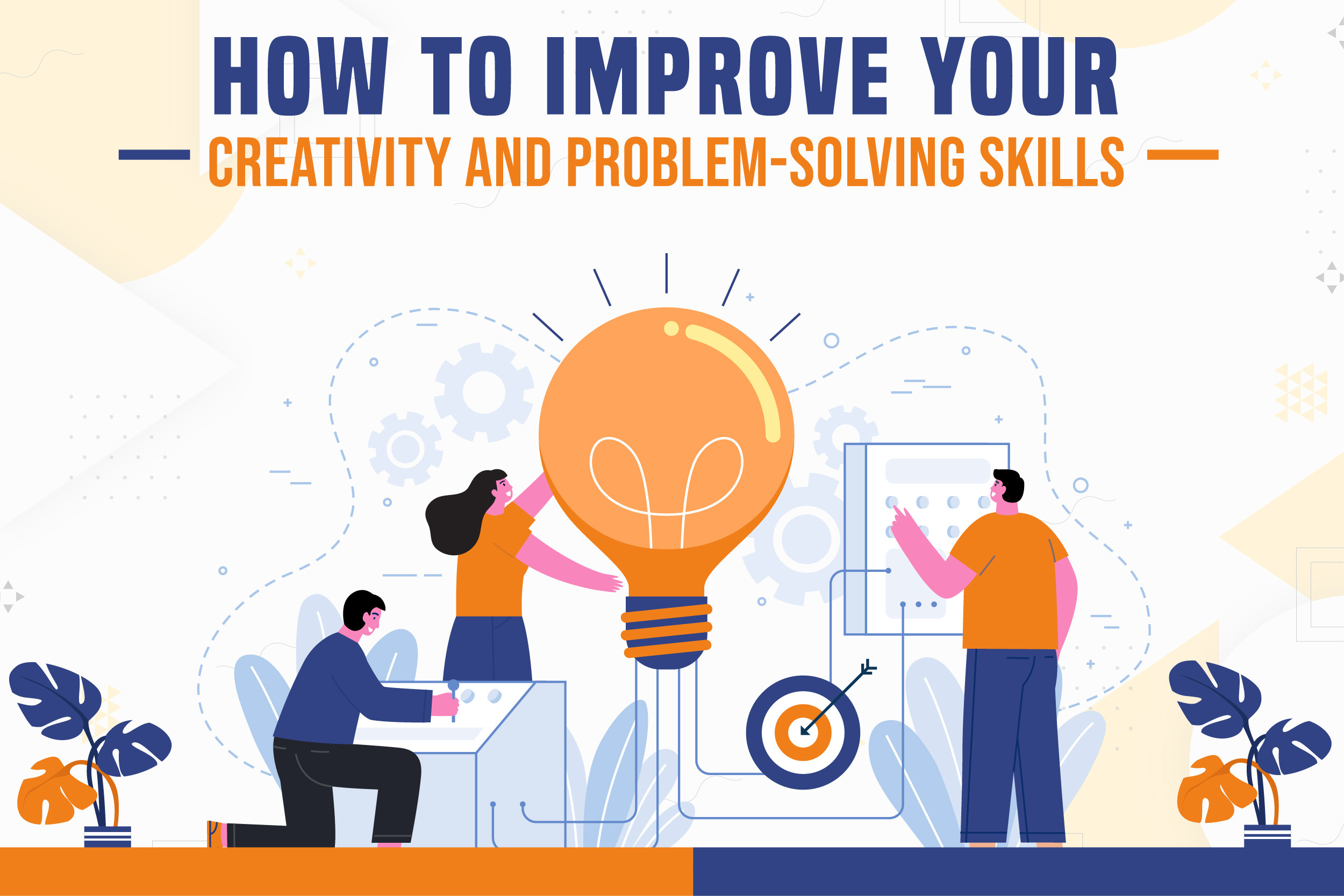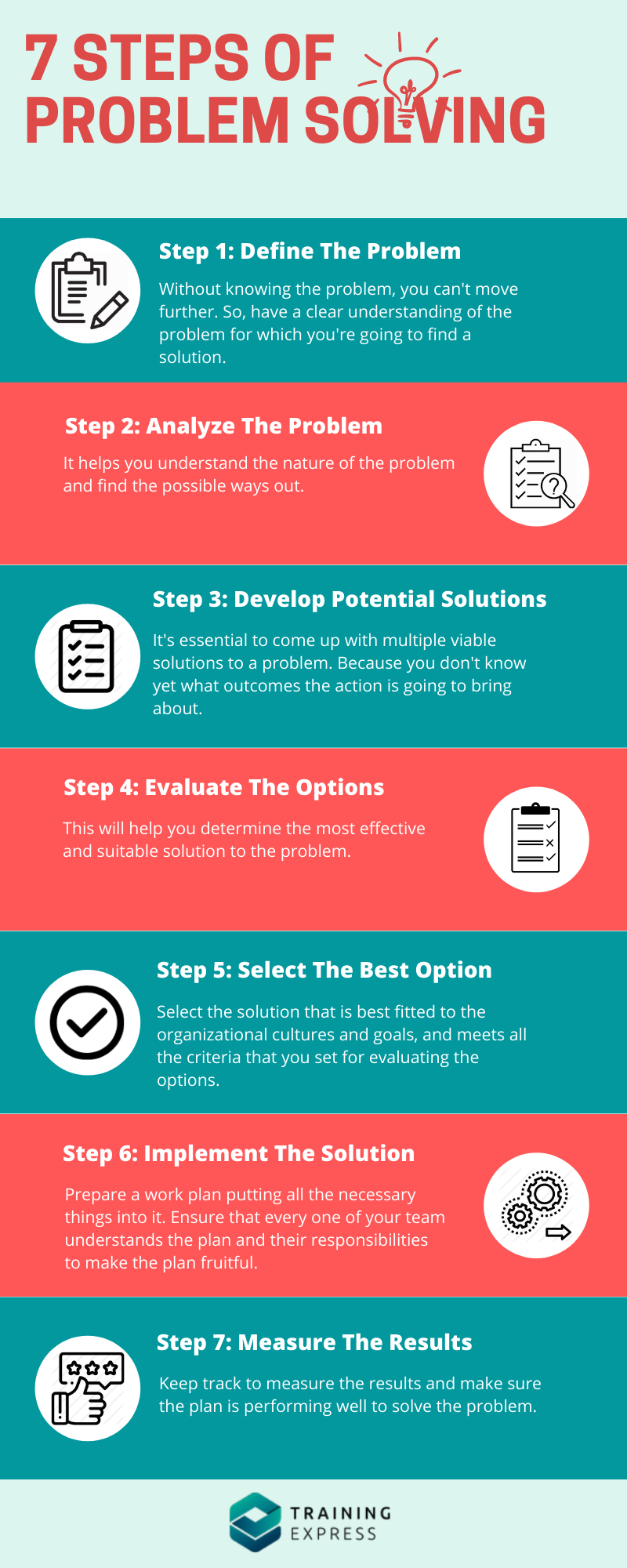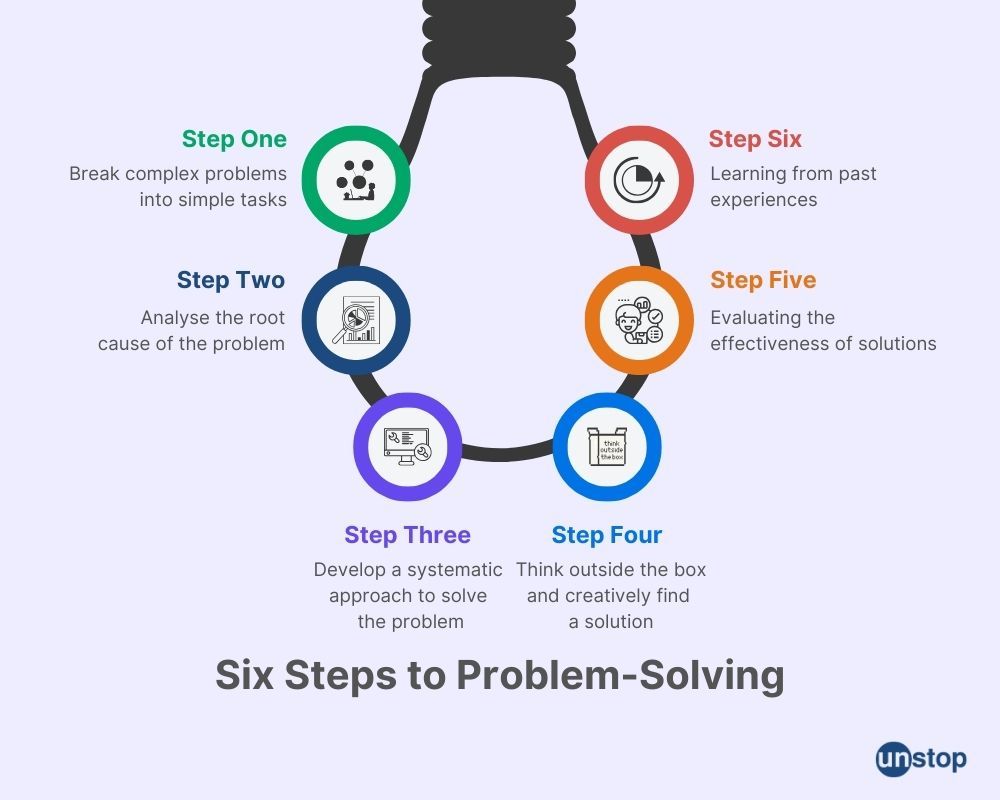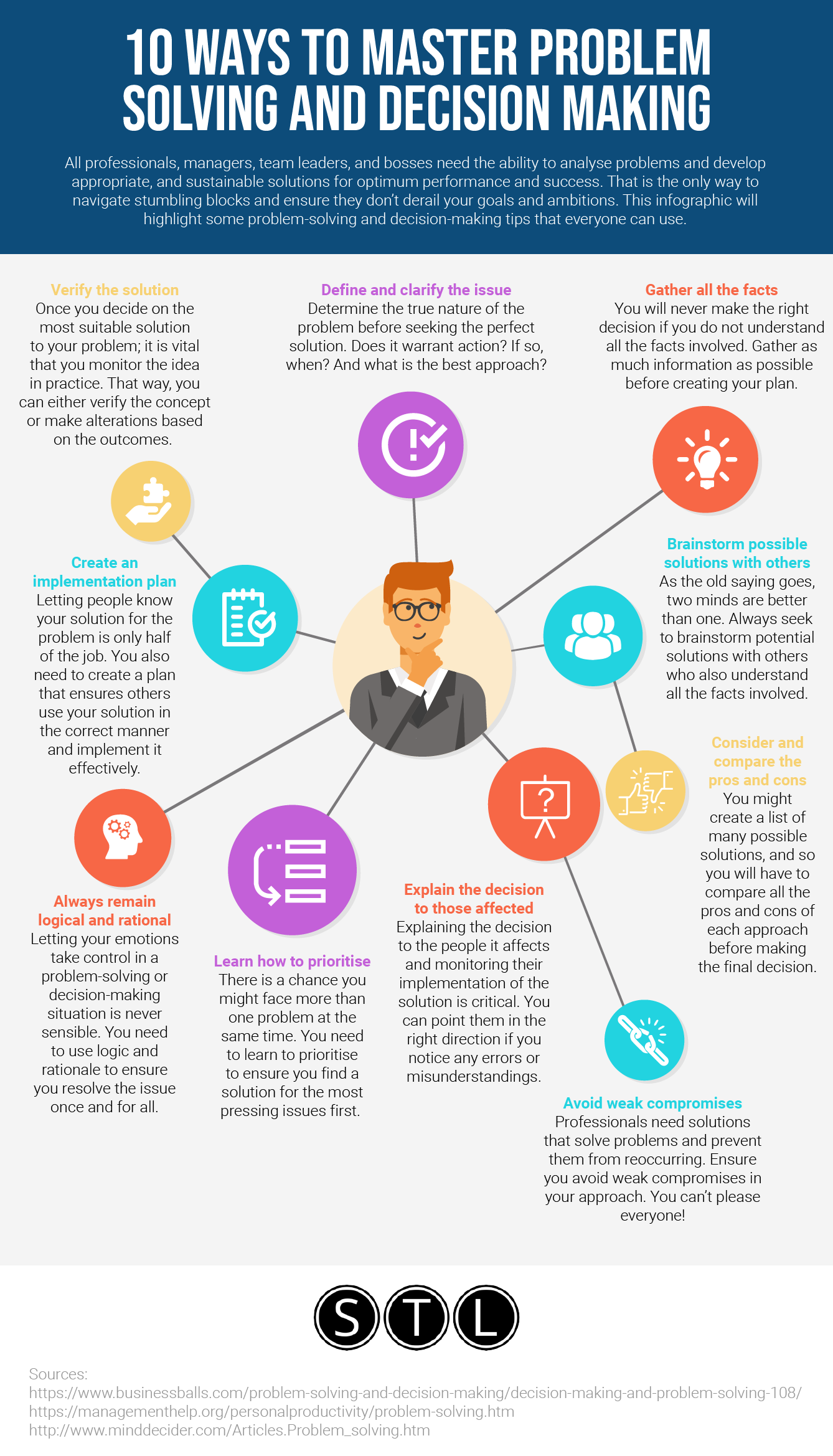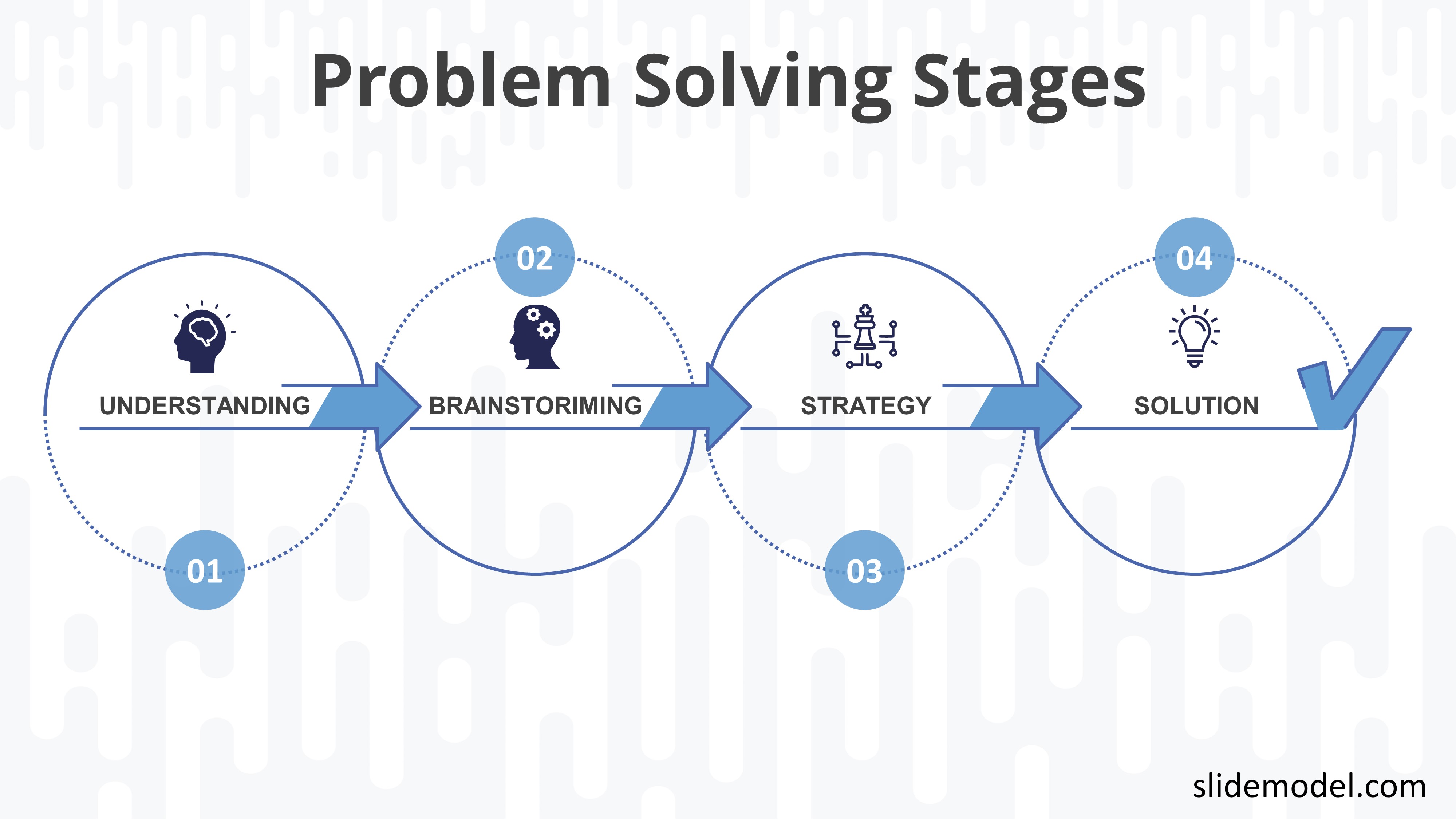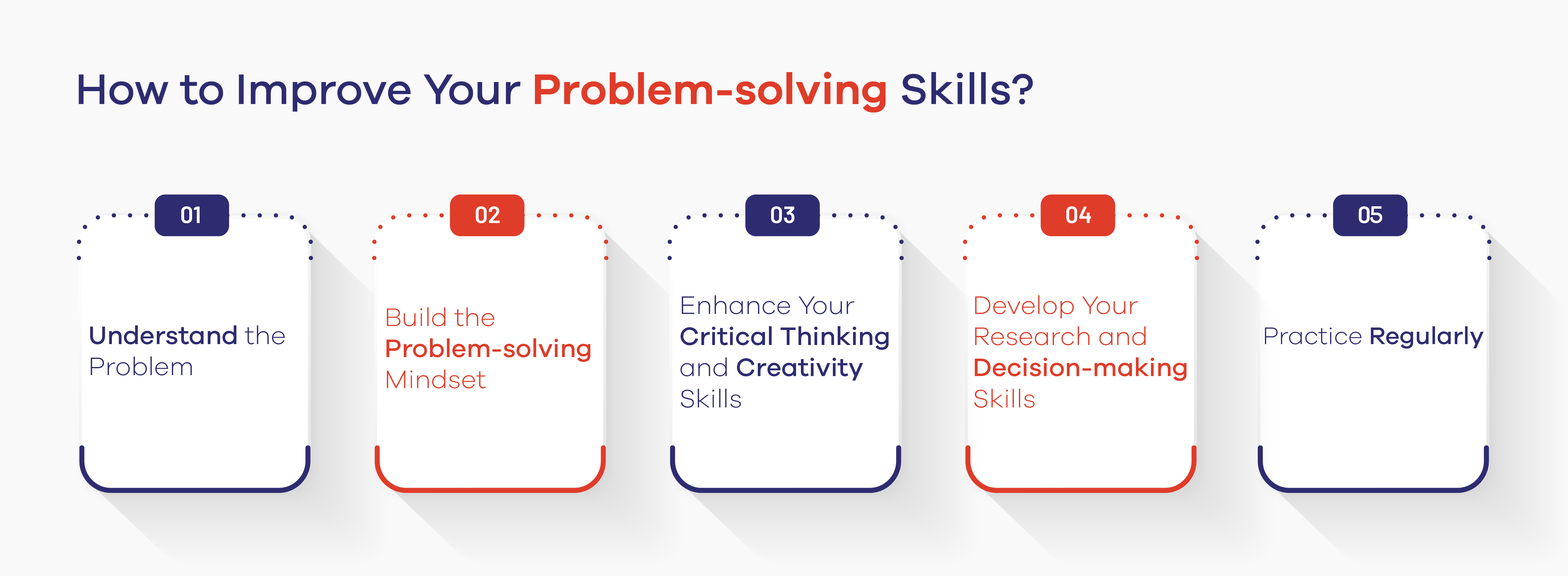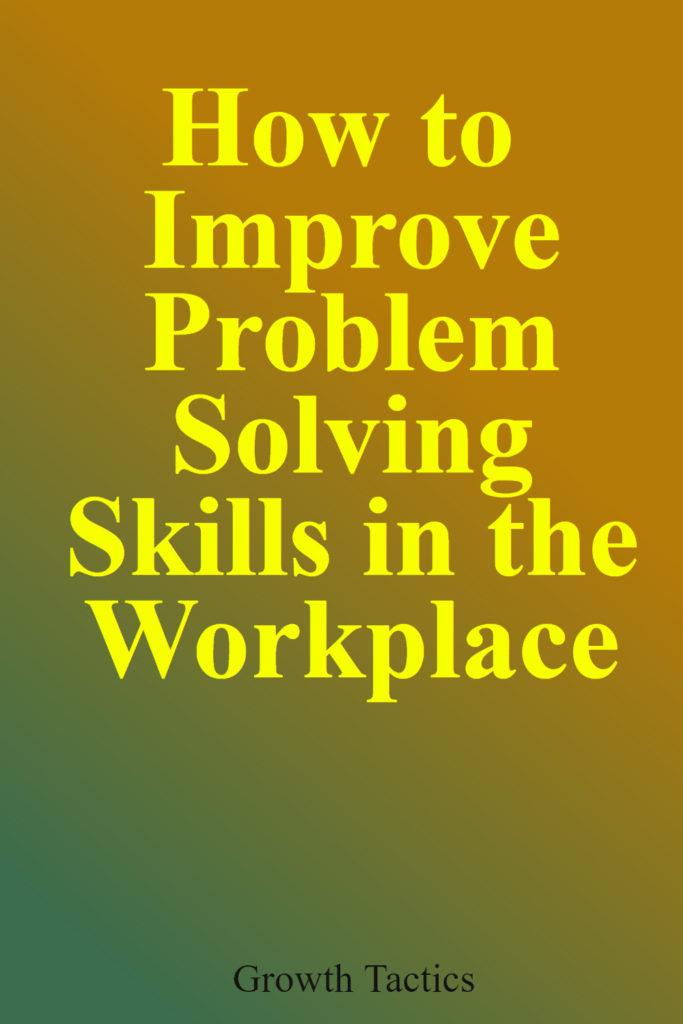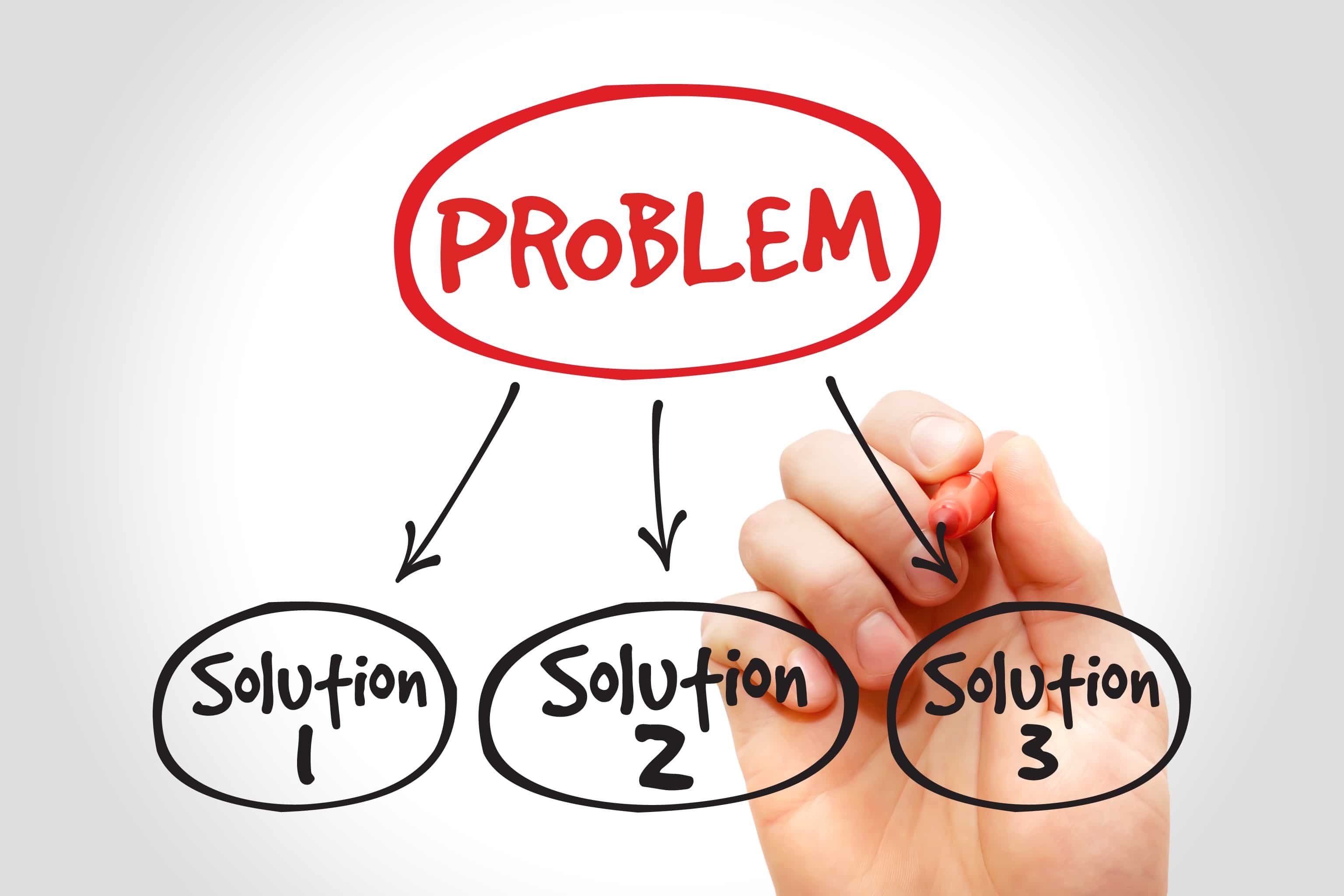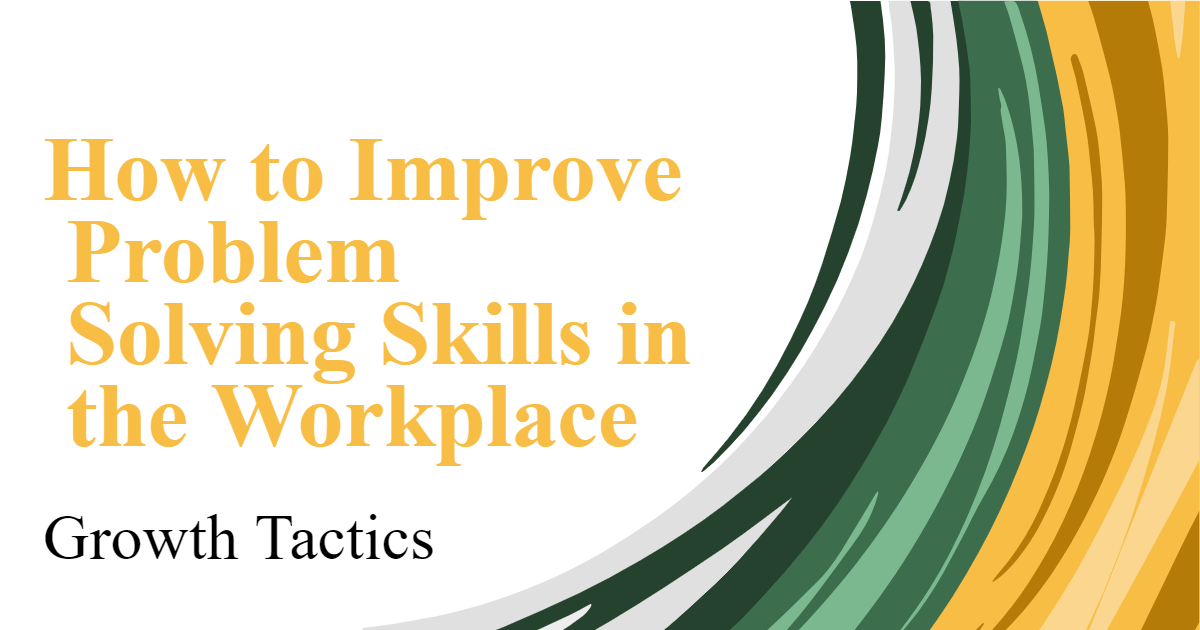How To Improve Problem Solving Skills In Business
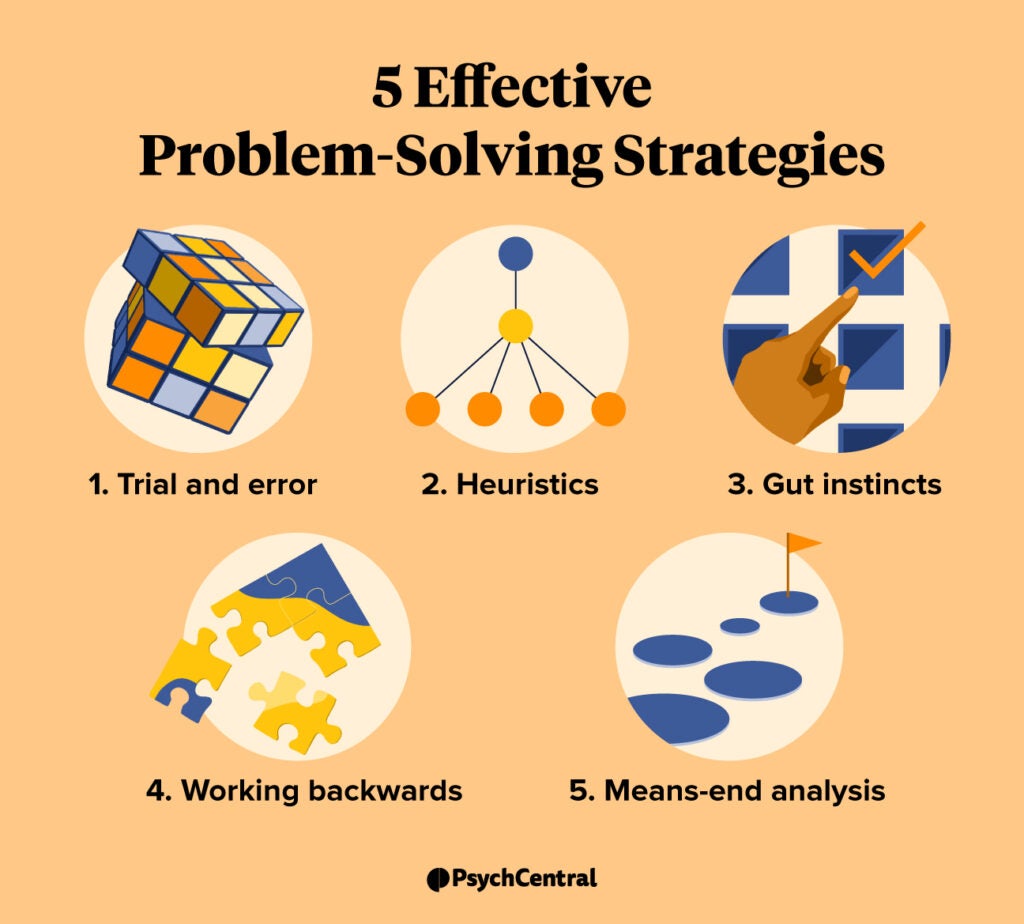
In today's dynamic business landscape, the ability to effectively solve problems is no longer a desirable skill, but a critical necessity for success. From navigating market disruptions to optimizing internal processes, companies that cultivate strong problem-solving capabilities are better equipped to thrive. But how exactly can businesses and individuals hone these essential skills?
This article delves into actionable strategies for enhancing problem-solving prowess within the business context. The key is fostering a culture that encourages critical thinking, collaboration, and a proactive approach to challenges. We will explore practical techniques and frameworks that individuals and organizations can adopt to improve their problem-solving capabilities.
Understanding the Problem-Solving Process
Effective problem-solving typically involves a structured approach. This often includes defining the problem clearly, analyzing its root causes, generating potential solutions, selecting the best option, implementing it, and evaluating the results.
Defining the Problem
The first step is arguably the most crucial: accurately defining the problem. A poorly defined problem can lead to misdirected efforts and ineffective solutions.
Techniques such as the "5 Whys" – repeatedly asking "why" to drill down to the core issue – can be invaluable in uncovering the true nature of a challenge.
Analyzing Root Causes
Once the problem is defined, it's essential to understand its underlying causes. This involves gathering data, conducting research, and analyzing the various factors contributing to the issue.
Tools like fishbone diagrams (also known as Ishikawa diagrams) can help visualize cause-and-effect relationships, making it easier to identify the root causes of a problem.
Generating and Evaluating Solutions
Brainstorming sessions, both individually and in groups, can be used to generate a wide range of potential solutions. It's important to encourage creativity and avoid premature judgment during this phase.
Once a list of potential solutions is generated, each option should be carefully evaluated based on its feasibility, cost-effectiveness, and potential impact. SWOT analysis (Strengths, Weaknesses, Opportunities, Threats) can be a useful tool here.
Implementation and Evaluation
After selecting the best solution, it needs to be implemented effectively. This involves creating a detailed action plan, assigning responsibilities, and setting timelines.
Regular monitoring and evaluation are crucial to ensure the solution is achieving the desired results. Data should be collected and analyzed to track progress and identify any necessary adjustments.
Cultivating a Problem-Solving Culture
Beyond individual skills, fostering a culture that encourages problem-solving is essential for organizational success. This involves creating an environment where employees feel empowered to identify problems, propose solutions, and take initiative.
Encouraging Collaboration: Teamwork and collaboration are critical for effective problem-solving. Diverse perspectives and skillsets can lead to more creative and innovative solutions.
Promoting Critical Thinking: Businesses should provide training and resources to help employees develop critical thinking skills. This includes the ability to analyze information objectively, identify biases, and make sound judgments.
Embracing Failure as a Learning Opportunity: It's important to create a culture where failure is seen as a learning opportunity, rather than a cause for blame. This encourages employees to take risks and experiment with new solutions.
"The significant problems we face cannot be solved at the same level of thinking we were at when we created them," Albert Einstein.
The Impact of Improved Problem-Solving Skills
The benefits of improving problem-solving skills extend far beyond simply resolving immediate issues. Organizations with strong problem-solving capabilities are more adaptable, innovative, and competitive.
According to a recent report by Deloitte, companies that prioritize problem-solving training see a significant increase in employee engagement and productivity.
Moreover, strong problem-solving skills contribute to improved decision-making, reduced costs, and enhanced customer satisfaction.
In conclusion, developing problem-solving skills is a strategic imperative for businesses seeking to thrive in today's challenging environment. By adopting a structured approach to problem-solving, cultivating a problem-solving culture, and investing in training and development, organizations can empower their employees to tackle any challenge with confidence and creativity. This leads not only to immediate solutions but also to long-term growth and success.


